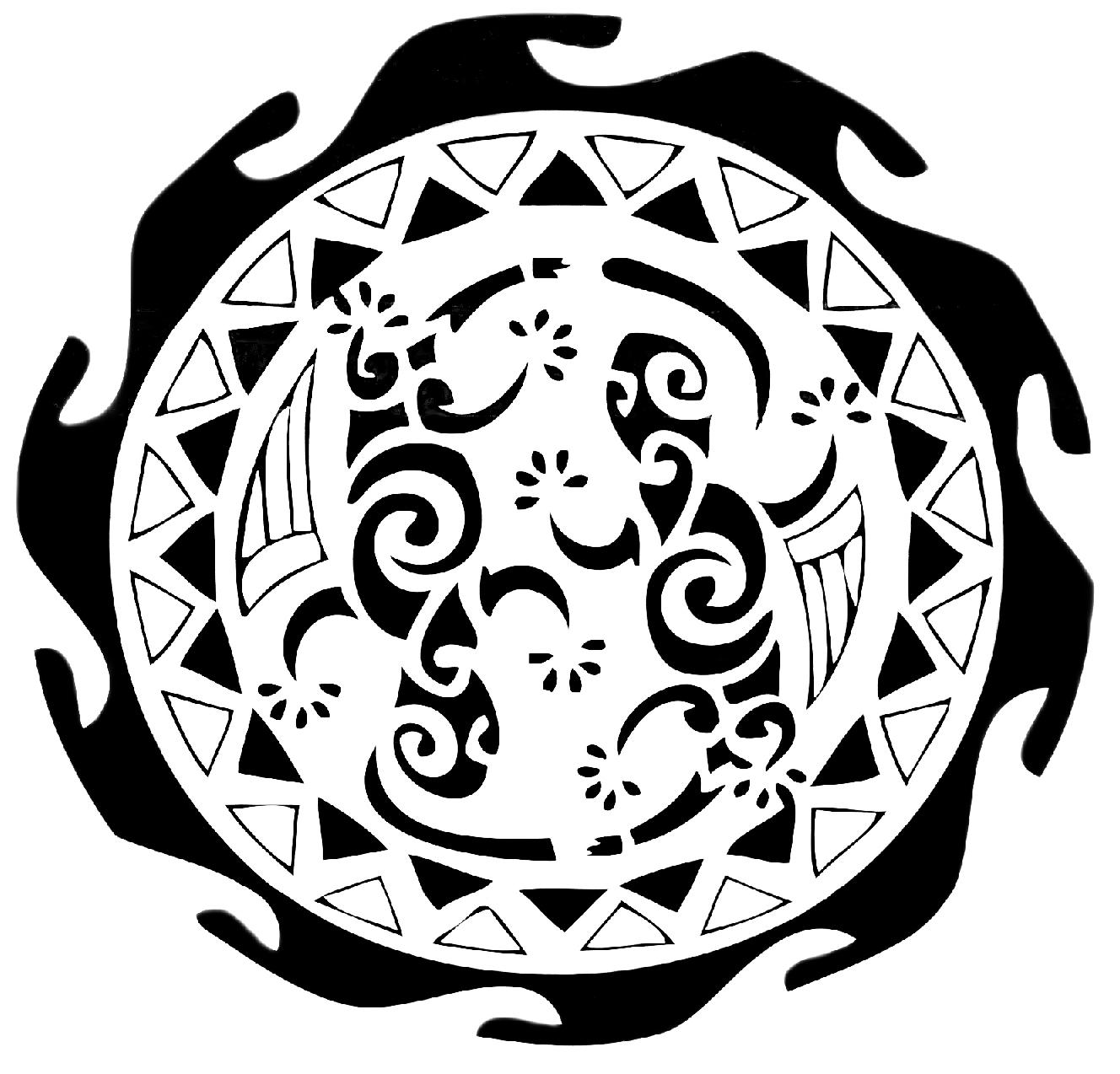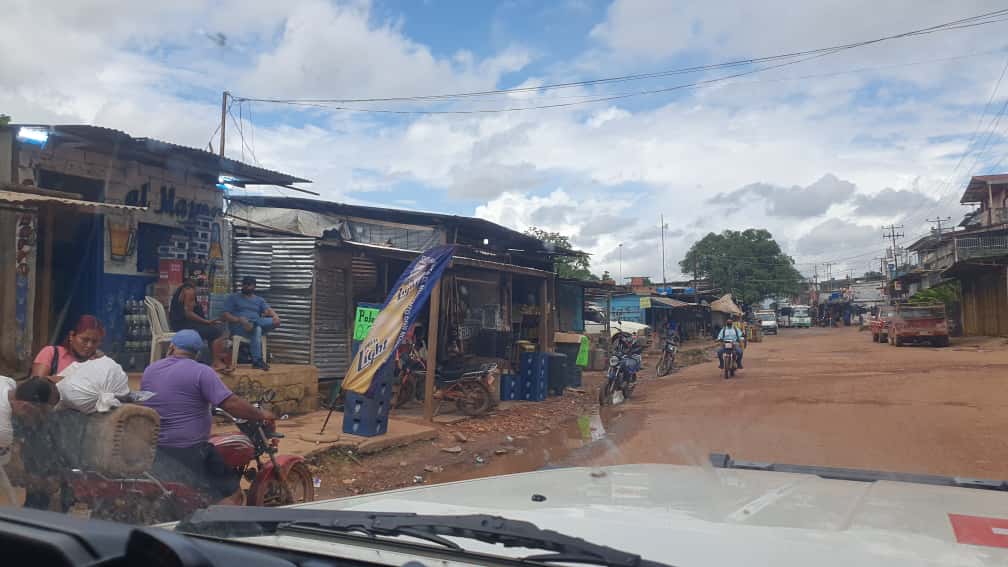Adventuring into the South
We actually wanted to eat something, but we quickly fled back to the car. The air stinks and everyone is wearing masks. We stopp next to a young man, roll down the window, and ask him why he was wearing a mask. He mumbles something incomprehensible, starts the engine and drives off.
We tried our luck with two other people, but nobody here in Las Claritas seemed willing to give us an answer. We can definitely imagine the reason, but we have to wait until we meet Bruno to confirm it.
For now, it’s better if we move on out of Las Claritas and eat the leftovers from the fridge.
A river and steel
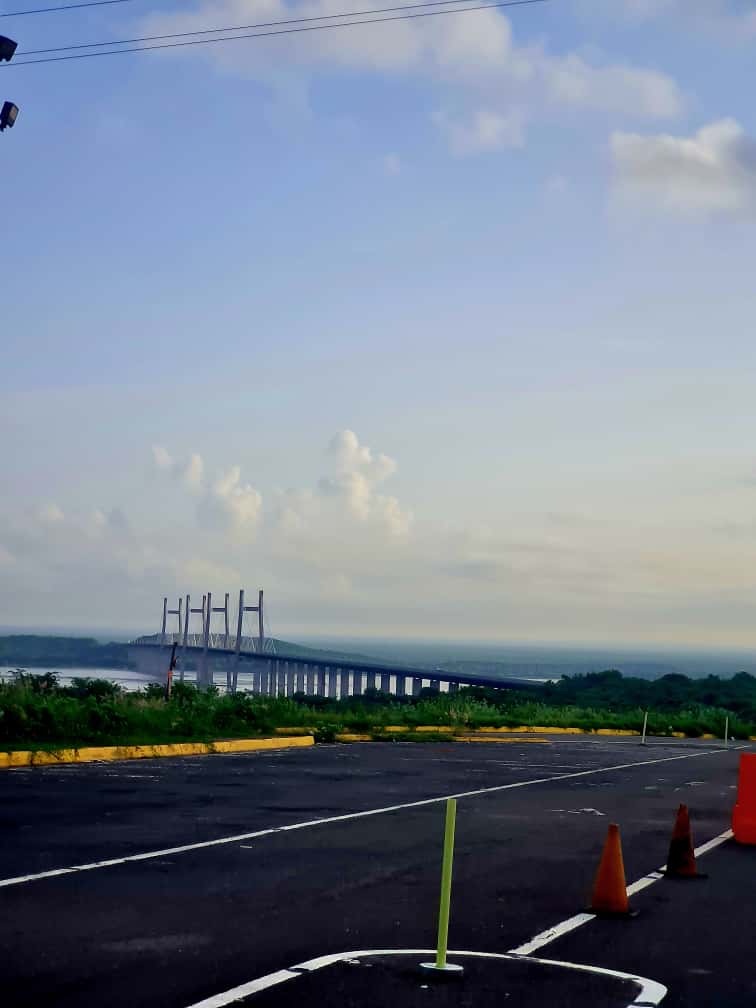
The Bolívar region lies in the south of Venezuela. The only road connecting the country with its neighbour Brazil is the Troncal 10. However, there is no road to Guyana in the east.
The Troncal 10 is the gateway to the Amazon jungle, welcoming visitors with the impressive Orinoco River bridge. There are only three bridges that cross the Orinoco in Venezuela. The Puente Orinoquia is three kilometres long and takes us 300 metres above the water. The river seems endless, carrying vast quantities of water downstream at great speed. It is the third largest river in the world in terms of water volume, after the Amazon and the Congo.
Due to the large volume of water, the river is navigable by large boats and plays an important role in transporting goods for heavy industry. On the opposite bank, we see a bleak scene: the chimneys of steelworks along the riverbank make everything appear grey. Just behind them is Puerto Ordaz, the river port of Ciudad Guayana.
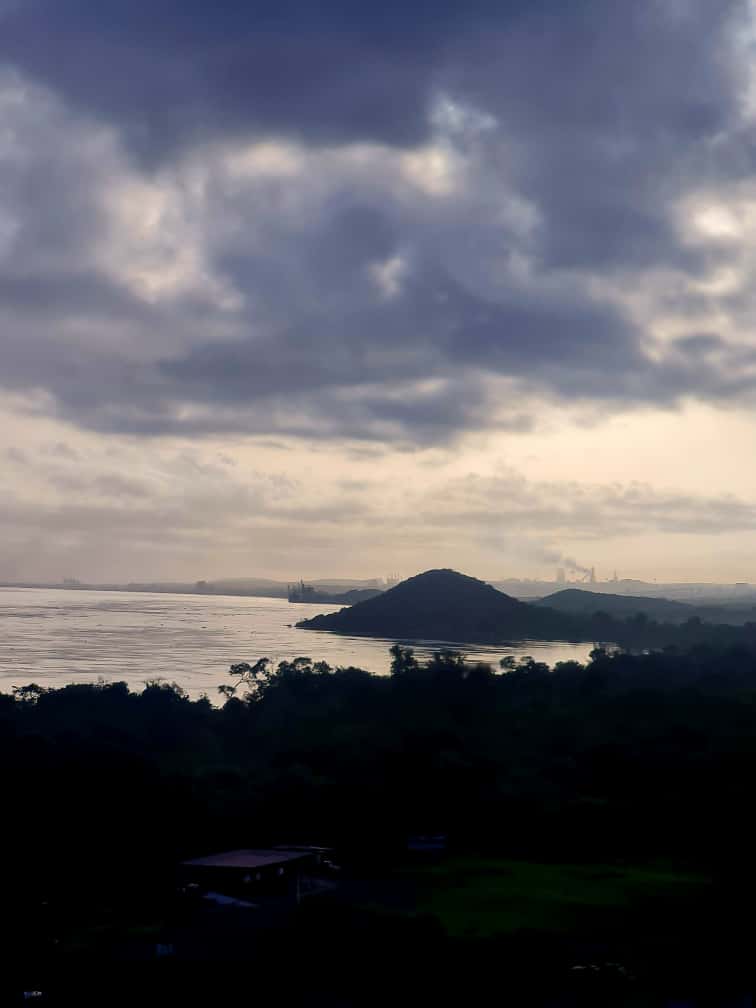
Blind paying
With nearly one million inhabitants, Ciudad Guayana is a big, chaotic city and an important economic driver for the region. This is our last chance to fill up with diesel at a regular petrol station at the standard price, but we did have to plead a little for it. Although I can pay by card at the till, the process makes me feel a bit like a criminal.
The cashier is in a small, air-conditioned room. There is a large window that I cannot see through, a microphone, and a small opening. A female voice tells me the amount to pay. I correct her because we filled up with less diesel than expected. Then I have to give her my card and tell her my PIN loudly. She puts it in for me. I have no idea what is happening; at least my banking app tells me that the amount is correct. She gives me my card back and a number on a piece of paper. I have to give that to the attendant outside, and then we can leave.
Our big tank is completely topped up, and we’ll need all the petrol because there are no petrol stations for the next 700 kilometres until Brazil. We want to go all the way and come back again. There are plenty of other places to fill up along the road. Everyone sells gasoline and diesel illegally in plastic bottles: Five litres for one. Weird, because that would be very cheap. Just so you know, 1 means 0.1 grams of gold, or 1 punto as they call it here.
The real El Dorado?
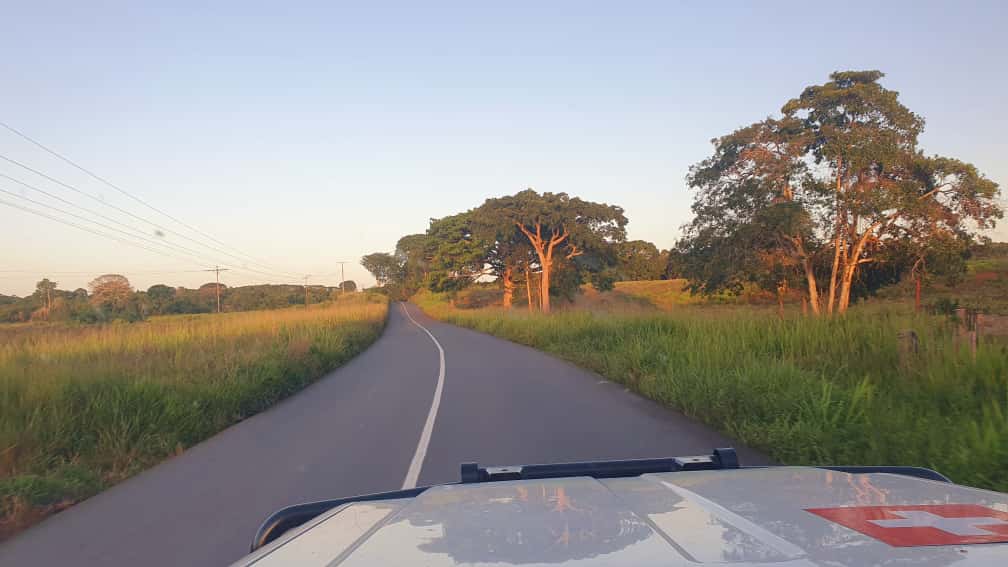
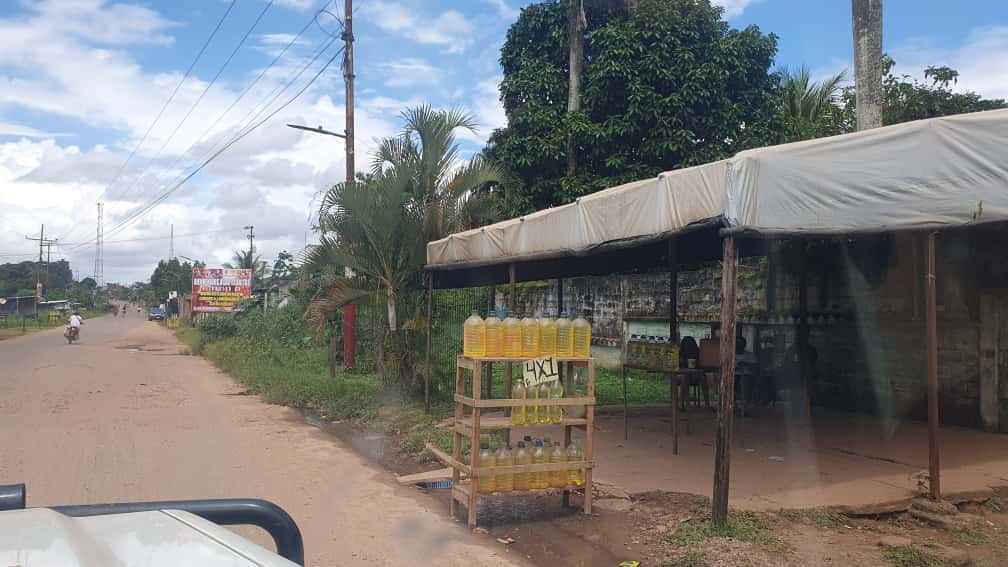
We are driving through the gold mining region of Venezuela. The further south we go, the more prices are quoted in gold: one box of beer is 2.5 punto, and three empanadas are one punto. Actually, it’s expensive because they want 10 dollars for one punto, whereas an empanada usually costs us one dollar in Venezuela.
However, they would prefer us to pay in gold. They do accept dollars, but not Venezuelan bolívares. They might also accept Brazilian reais, but we don’t have any. They keep the crude gold folded in paper and weigh it to calculate the price – every business man carries a set of scales here.
After Tumeremo, the road gets worse with one pothole after another until there it was ok. You can feel the winds changing. The towns are found along the road and named after their location in kilometres. At Kilómetro 88, there should be a gold centre. We asked them what they would pay: $100 for one gram of pure gold. The seller buys the gold from artisanal miners and then resells it to others.
Officially, gold should be sold through the government, but illegal trafficking is more lucrative and allows them to avoid foreign sanctions and mix gold into the legal market. We’re not allowed to buy any gold directly from him, so we leave it. It also seems a bit dubious, this entire region.
The people don’t seem healthy either; they are very thin with black masks covering their mouths and noses, and they have red eyes. The large gold enterprises are surrounded by high walls and have security guards stationed at the entrance. Meanwhile, the poor climb up the steep hills from the river with a gold pan in hand.
A Swiss as a Venezuelan colonel
Bruno is Swiss and was a colonel in the Venezuelan army. He has been living in Venezuela for over 50 years. His career path is unconventional: from Vietnam to Rwanda, he ended up serving as a prison director in southern Venezuela.
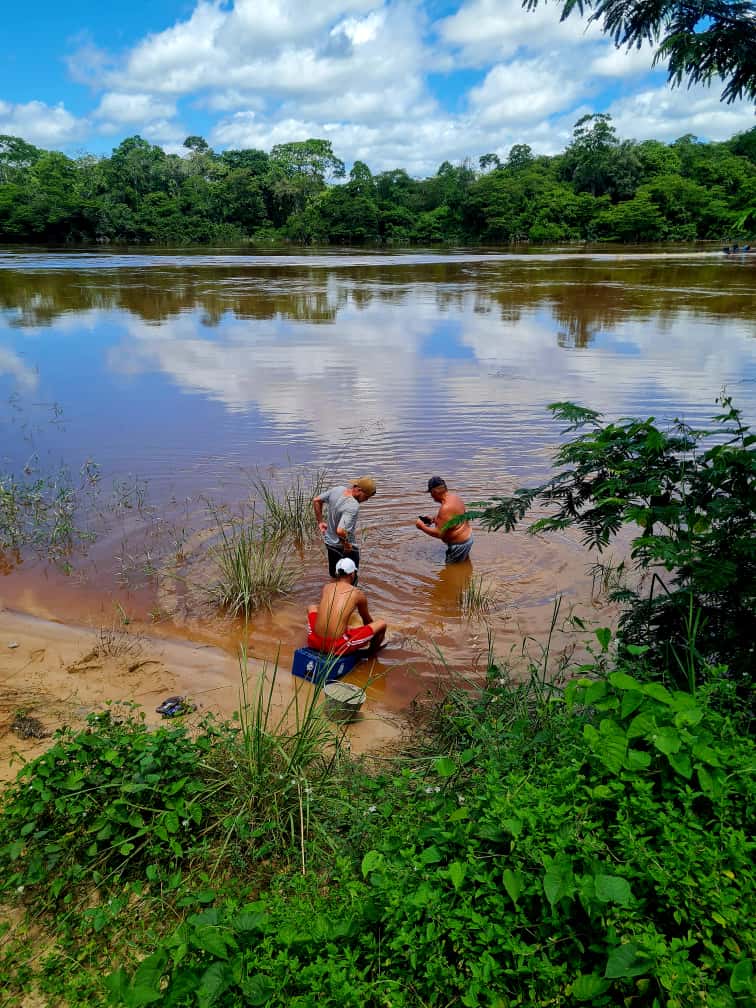
Bruno lives on the Cuyuní River. On his Encanto Cuyuní farm, not much remains of the once clear river – the Cuyuní magic, as he called it. Now it flows dirty brown towards Guyana. It is polluted with mercury and is just one of 16 heavily contaminated rivers in the country.
Gold was discovered early on in the region, along with other valuable metals. There is also oil in the area. Since the 19th century, these rich deposits have been the main cause of the land dispute between Venezuela and Guyana – and one of the reasons why there is no connecting road.
Gold mining on this scale is a relatively new phenomenon. It was only 20 years ago that gold mining in the Amazon region became more intensive. What was previously regulated by international companies fell into the hands of armed groups. And the government also got involved with the Orinoco mining project on the Orinoco River, with gold set to become the new oil for Venezuela. And so the disaster eats its way through the forest.
The area presents a sad, desolate picture. Life is marked by violence, as Bruno’s stories repeatedly confirm. You can’t be squeamish here. And you should have good friends. Otherwise, you won’t live long. Mass graves are just one example of this – most of the dead are never found, lost in the brown waters of the river.
Venezuela’s dire situation in 2015 drove many people to this area, where they could at least earn some money. The region survives on smuggling goods into neighbouring countries. Since then, the villages have been overcrowded, with many people sleeping in makeshift shelters.
Looking for the magic of Cuyuní
We spend a few days with Bruno, standing right by the river and watching the hustle and bustle on the water and on land. We are actually standing in the middle of El Dorado, literally, because that is the name of the village next door. But the beauty and magic have long since faded.
Nevertheless, El Dorado and Bruno’s location are worth their weight in gold. The Cuyuní River flows into Guyana. Just one hour downstream, you are in the neighbouring country. Those who live by the river control the smuggling routes. What’s more, the land is made of gold. Test mining has revealed high quantities of the precious metal. So far, he has only extracted gold from the river, but from this winter onwards, the surrounding forest will also be targeted. Bruno wants to get everything he can out of it in his old age.
Getting our hands dirty
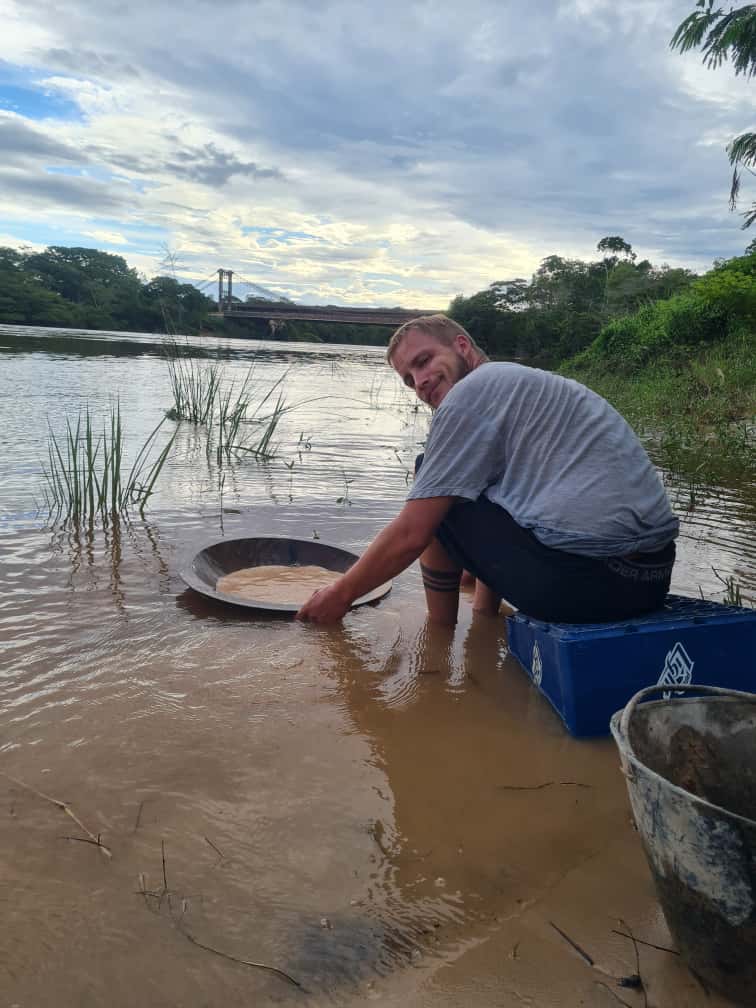
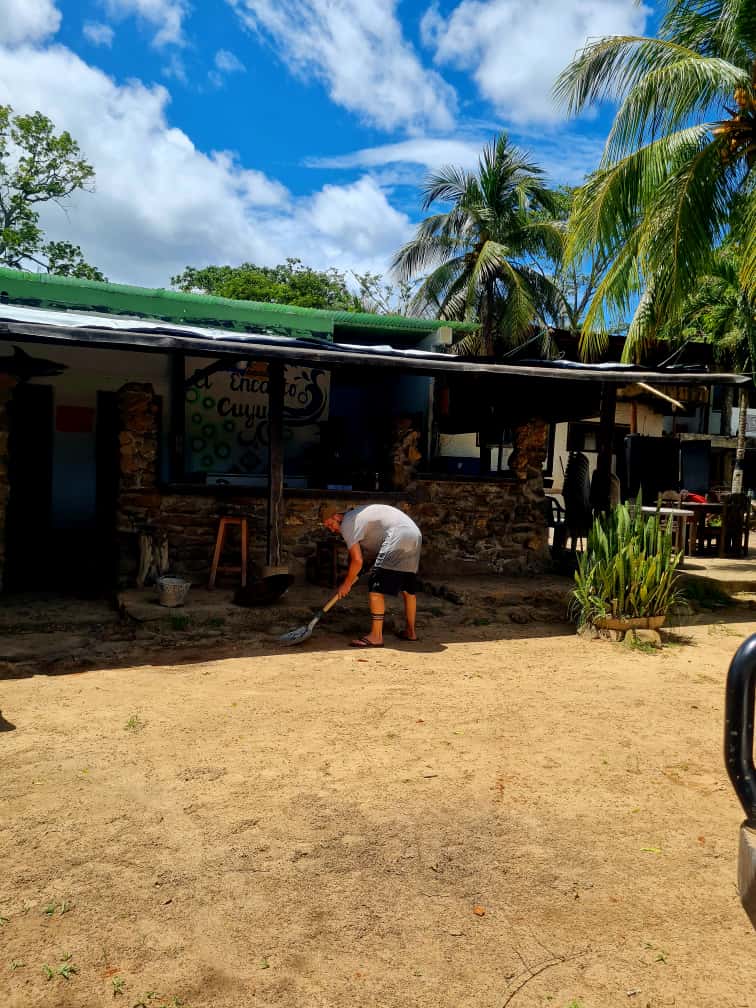
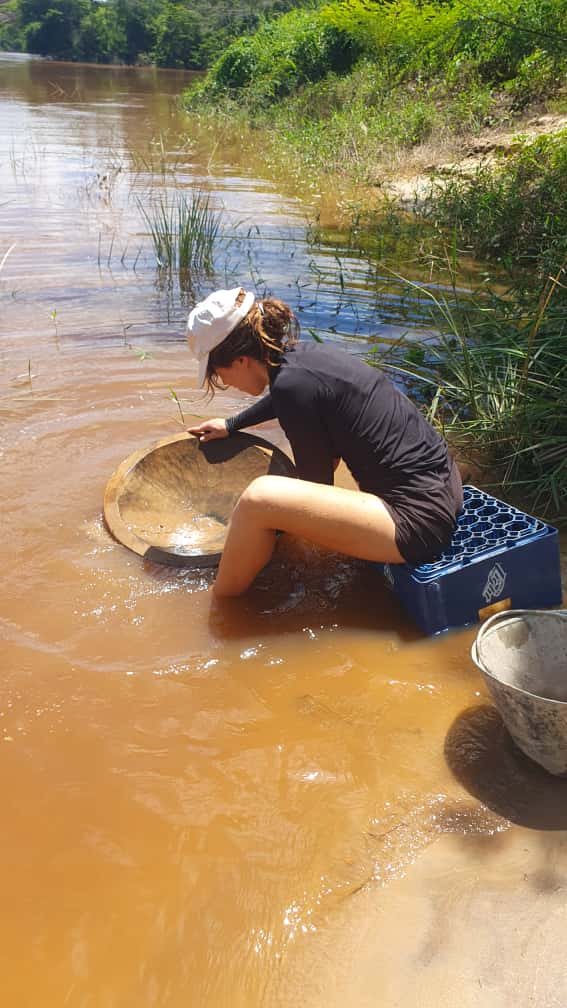
Since we are already sleeping on gold, we want to feel like gold miners for once. Bruno gives us a gold pan and a few beers and explains to us on the riverbank what is important. We are allowed to fill a bucket with earth directly from the car park and then wash it out at the river.
Michael spends half a day at it. He fills the bottom of a small plastic bottle with gold dust and small minerals. An employee gives us a drop of mercury from a nasal spray, which is almost as valuable as gold.
Mercury has actually been banned in Venezuela since 2016, but the ban is hardly enforced. Nature suffers as a result: the few fish are poisoned and the rivers are dead. The water is polluted everywhere. Those who do not have their own water source and cannot afford extraction have to buy expensive water. What does not end up in the water is burned, contaminating the air and making it stink. This explains the many masks in Las Claritas.
The drop of mercury binds the gold into a small, silvery pile. The water is squeezed out and the small residue is placed on a spoon. The mercury evaporates over our gas stove, leaving gold behind.
The yield is 0.18 grams, which is worth just under 18 dollars locally. For the area, that’s rather meagre, but for us it’s our first earnings in a long time.
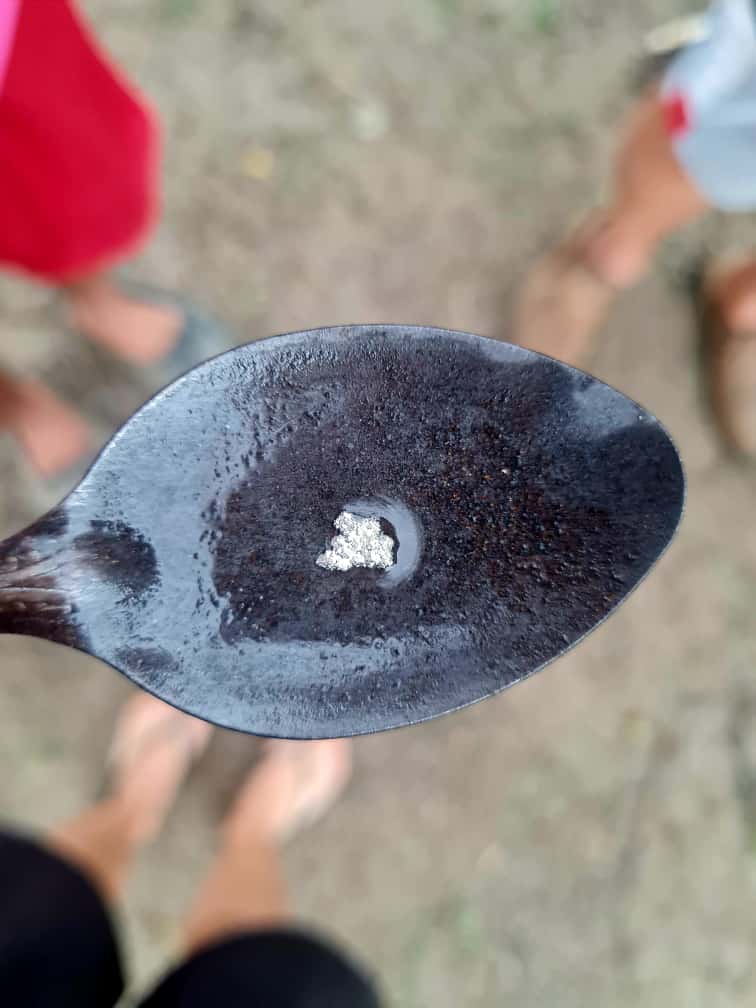
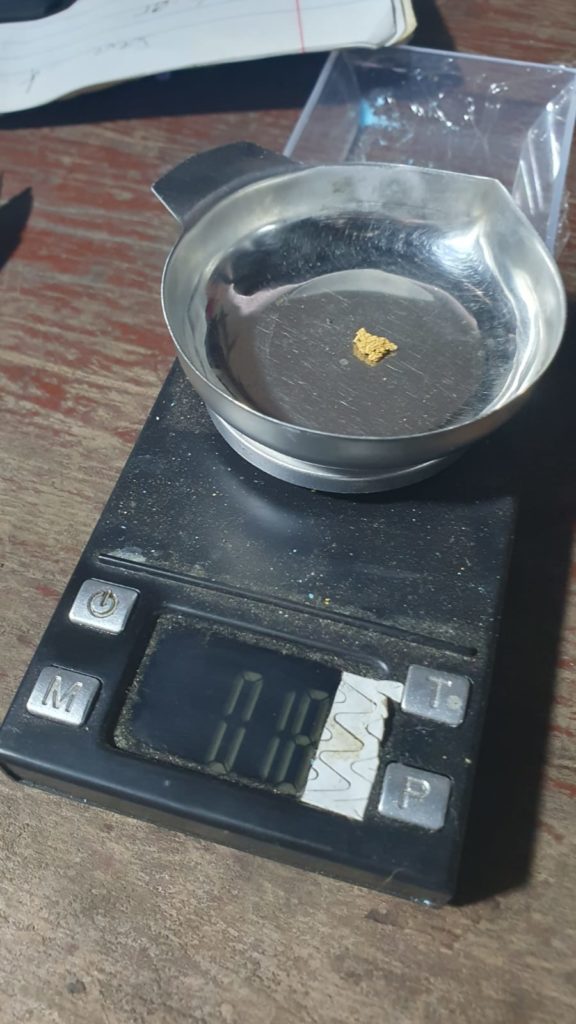
In Bolívar State, the hope of survival is mixed with the struggle for survival. It’s about the big money that makes the gangs rich and the exploitation of those who have no other options. Illegal activities are rampant – everyone has adapted.
Most of the few foreigners pass through quickly. The few days we spent there showed us a different world: in the lungs of the world, you need a mask to live.
